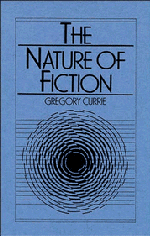Summary
Reflecting on the theory presented in these chapters, I think we might describe it as conservative. There is very little to which I have appealed in explaining fiction that is not already required for other purposes. The author's act that is productive of fiction turns out to be a communicative act with a quite familiar structure, a structure we invoke to explain other forms of communication. Fictional truth turns out to be explainable in terms of the familiar patterns of reasoning by which we infer the beliefs of others. Fictional characters and their names turn out to be intelligible without the invocation of a realm of fictional beings. Roles are defined as functions on possible worlds, and although possible worlds are philosophically controversial, their utility for those who accept them is established in a number of areas that have nothing to do with fiction. Our response to fictional characters is explained without recourse to intentional objects of thought other than propositions, and without violation of principles of rationality. Throughout we have found no reason to abandon classical principles of logic or to postulate beings of any irreducioly fictional kinds. For these reasons the theory recommends itself.
One thing we could not have done without is the notion of make-believe, and that has remained stubbornly irreducible. But the notion is not an extravagant or unfamiliar one. Future work in philosophy and psychology may succeed in illuminating it further.
- Type
- Chapter
- Information
- The Nature of Fiction , pp. 217 - 218Publisher: Cambridge University PressPrint publication year: 1990



